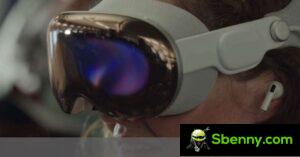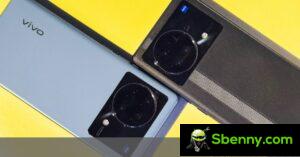You’ve probably heard of BMI and that it’s not a particularly good measure of your physical health. Bioelectrical Impedance Analysis (BIA) is much better, but until relatively recently the equipment was only available in gyms and clinics. Today smart wearables like Galaxy Watch4 and Galaxy Watch5 can measure BIA anytime anywhere. But how accurate can those wrist devices be? A joint research team from Louisiana State University, the Pennington Biomedical Research Center, and the University of Hawaii Cancer Center conducted a study to find out.

The study recruited 109 participants, 75 of whom completed the entire protocol. Readings from a Galaxy Watch4 were compared to clinical measurements performed using dual-energy X-ray absorptiometry (DXA) scanning and laboratory-grade octapolar bioelectrical impedance duplicate analysis.
When the watch measures BIA, it provides a report on several key statistics: lean mass, fat mass, skeletal muscle mass, basal metabolic rate, and total body water. The study found that having these measurements readily available helped improve people’s understanding of their behavior and how to improve it.

The BIA stats reported by the Galaxy Watch
Eventually nearly 60% of users increased their physical activity. A further randomized control study found that smart wearables reduced sedentary time by an average of 68 minutes. A meta-analysis of the effects of such wearables also showed that users increased their daily steps by more than 2,500.
Regarding the accuracy of the measurements, the study showed that the key statistics reported by the Galaxy Watch4 had a correlation between 97% and 98% with the results of the two reference methods. Here is the conclusion of the study:
After systematic correction, BIA smart-watch devices are capable of stable, reliable and accurate body composition measurements, with an accuracy comparable to but lower than that of laboratory measurements. These devices enable measurement in environments inaccessible to laboratory systems, such as homes, training centers, and geographically remote locations.
Obesity has become a global problem and is considered a chronic disease that develops over time due to overeating and less exercise. About 60% of deaths from cardiovascular disease are due to obesity.
Here’s how to use a Galaxy Watch to perform a BIA check, which takes about 15 seconds:
Samsung also offers several suggestions to improve accuracy:
- Measure at the same time of day
- Measure on an empty stomach
- Measure after going to the bathroom
- Measure when you don’t have your period
- Measure before performing activities that cause an increase in body temperature, such as exercising, taking a shower or going to the sauna
- Measure after removing metallic objects from your body, such as a necklace







Start a new Thread